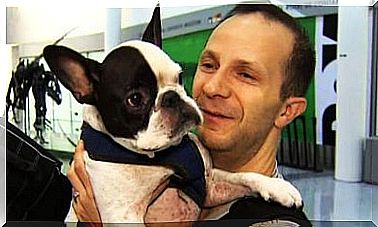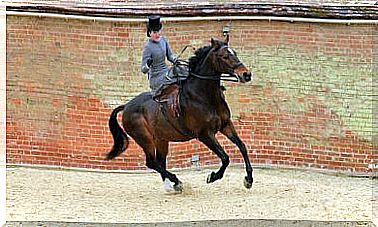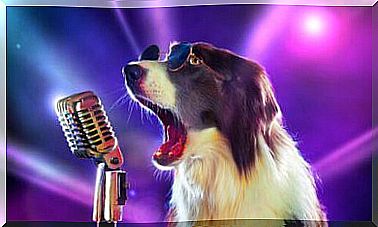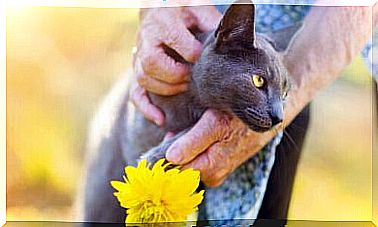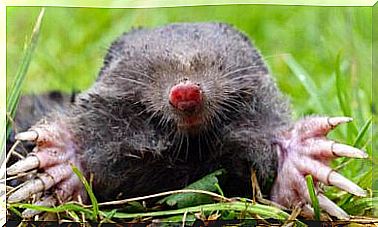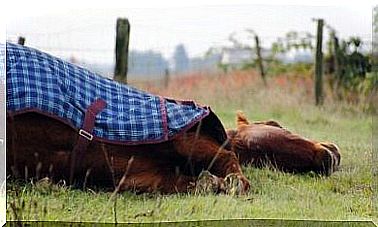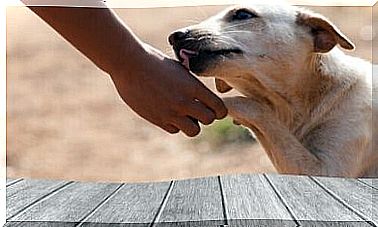The Feeling Of Injustice Experienced By Dogs
For a long time, it was believed that morality was something uniquely human. However, dogs and wolves also experience the feeling of injustice.
The origin of morals and empathy
There is no consensus on the origin of morality even when it appeared in human beings. The theme continues to be the subject of research and discussions among scientists, philosophers and religious.
A strong scientific current holds that humans have a kind of neuronal circuit to deal with moral issues. This means that feelings of fairness and empathy are not just cultural, they are innate to all human beings.

This would explain why some people who are born with disorders or suffer accidents that affect a certain brain region are unable to demonstrate empathy and, consequently, they develop difficulties in social interaction, which tends to isolate them.
Morals as an evolutionary skill of men
As with language, the most widely accepted theory holds that man would have developed empathy during his evolution. Basically, to guarantee community life.
Primitive humans would have realized that they needed to live in groups to be stronger and survive. This would give rise to the first rules of coexistence based on what was considered good for the community and what was not considered as such.
The individual who does not exhibit the proper behaviors for the community would be expelled and would have few options to survive on their own.
Over the years, the growth of human species and from societies, the notion of morality has undergone many changes. And our goal is not to judge them.
empathy in apes
Before analyzing the feeling of injustice experienced by dogs, these scientists related the evolutionary capacity of man with the history of the apes. These animals have gained the attention of many scientists thanks to their remarkable ability to learn and manage a complex society.
Therefore, experiments were carried out with different species of monkeys. The aim was to study their ability to show empathy and react to injustice.
The result was even better than expected. It was observed that apes did not consume the food offered to them if it meant that it would harm their fellow man. Likewise, they refused to cooperate in any activity when they witnessed an injustice.
This means that apes, like humans, are able to distinguish the justice of injustice. Therefore, they are easily aware when they are witnesses of an injustice.
These discoveries paved the way for research on ethical capacity in other animals, revolutionizing classical moral theories.
Feeling of injustice experienced by dogs and wolves: recent studies
After the success of experiments with apes, scientists started to consider other mammals, until then considered “inferior”.
Some studies had already revealed that dogs showed empathy towards mammals and humans. The results indicated that the cause was a capacity for social adaptation. This was a result of the historical coexistence with Men and other pets.
However, researchers at the University of Vienna have revealed that the sense of injustice experienced by dogs and wolves may have a biological basis. This would demonstrate that the moral capacity of these canids predates domestication.
The experiments used previously trained dogs and wolves to press a button (which produced a continuous, hoarse noise or sound) after receiving an order. It was found that the animals refused to press the button when they realized they were receiving a unfair treatment towards them or towards their fellow men.
For example, dogs and wolves refused to press the button when offered a smaller reward than their peers. Furthermore, they were resistant when a reward was offered to someone else and not them.
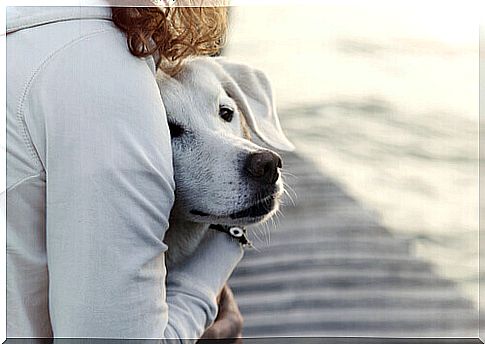
Dogs and wolves refused to continue participating in the experiment when they realized the unfair relationship.
Feeling of injustice experienced by dogs and the social hierarchy
The same experiment found the existence of a remarkable social hierarchy that exists in packs of dogs and wolves.
The alpha animals, pack leaders, were clearly more impatient and reluctant when they realized that their reward was inferior.
It has been proven that the wolves they are not capable of being domesticated. Even so, they showed similar behaviors in situations of injustice. These observations allowed to overturn the notion that the feeling of injustice experienced by dogs is only a domestication.
